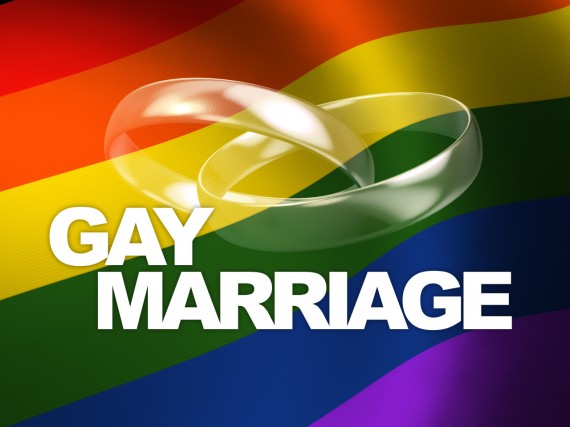Same sex Marriage – Opinion in The Hindu

A model for India
The Hindu Editorial June 30, 2015
(Note: There are situations in which separation of families is “inevitable” and even “morally necessary” due to severe problems caused by arrogance, violence, humiliation etc. Can one think of Pope Francis to say this, but he did, just as he said:”Who am I to judge” if homosexuals and lesbians seek God? Not to judge, is the minimum we should do when our upbringing forces us not to approve. Change is the unchangeable law of nature. That is why “Church must be constantly reformed” learning from the signs of the times, like Ireland said to be more Catholic than the Pope voted en-block for same sex union. We all have to listen and learn, even if our upbringing does not permit us to approve. Do not judge families in crisis, for the sake of the human family which includes your own. james kottoor, editor)
It is rare that a decision made by the Supreme Court of one country gives cause for cheer across the world. The U.S. Supreme Court’s momentous verdict allowing same-sex marriages across that country sparked celebrations among the LGBT community and expressions of support from others. Implicit in every such celebration or voice of support is the expectation that other societies too would follow suit, if not in recognising same-sex marriages, at least in ending open discrimination based on medieval prejudice. The community’s long battle for equal rights has reached its logical conclusion there. The court ruled that the bond of marriage cannot be limited to opposite-sex couples. From the time it upheld in 1986 a law that made homosexuality a criminal offence, to overturning the ruling in 2003, and now allowing same-sex marriages, the U.S. Supreme Court has made considerable progress in recognising the liberty of individuals with alternative sexual orientation and their right to equal treatment before the law. Instead of hiding behind traditional arguments to the effect that legal questions concerning personal relations such as marriage be best decided by elected bodies, the court has said that the ‘due process’ and ‘equal protection’ clauses in the 14th Amendment to the U.S. Constitution are as available to the gay community as anyone else when it comes to marrying a person of his or her choice, including of the same gender.
It is inevitable that such a ruling occasions an evaluation of where India stands. Indian law on homosexuality continues to be retrograde. The Supreme Court’s December 2013 judgment upholding Section 377 of the Indian Penal Code, which seeks to punish “carnal intercourse against the order of nature”, continues to hold the field. The pious observation by the two-judge Bench that it was up to Parliament to decide whether to retain, amend or delete the section has not been acted upon by the political leadership. The restraint that the court has shown in not striking down Section 377, and the reasoning that it should be left to the legislature to decide whether or not to decriminalise homosexuality, fell short of Indian judicial standards. There are several cogent arguments — including some that figure in the U.S. Supreme Court’s majority opinion — in favour of judicial intervention to uphold individual liberties. Now that the judicial opportunity has been lost, the legislature cannot shirk its responsibility any longer. It may seem unlikely that parties embroiled in electoral politics will risk antagonising conservative sections of society. However, progressive parties and liberal parliamentarians should come forward with amendments to delete or at least dilute Section 377. An outdated provision cannot be allowed to violate fundamental rights and offend human dignity by remaining on the statute book.
+++++++++++++++++++++
















